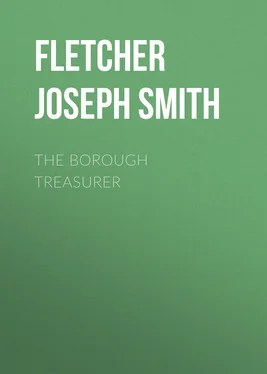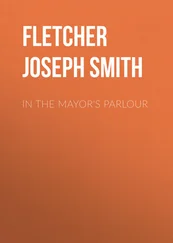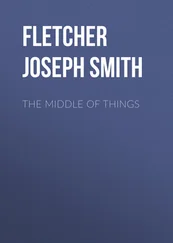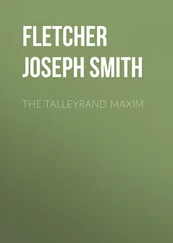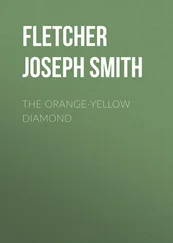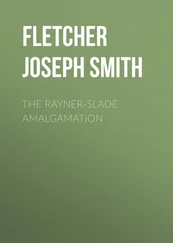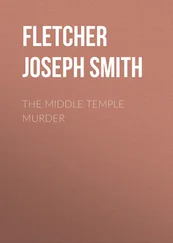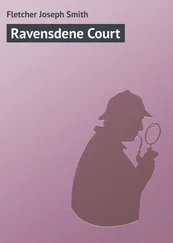Joseph Fletcher - The Borough Treasurer
Здесь есть возможность читать онлайн «Joseph Fletcher - The Borough Treasurer» — ознакомительный отрывок электронной книги совершенно бесплатно, а после прочтения отрывка купить полную версию. В некоторых случаях можно слушать аудио, скачать через торрент в формате fb2 и присутствует краткое содержание. Жанр: foreign_prose, Классический детектив, foreign_detective, foreign_antique, на английском языке. Описание произведения, (предисловие) а так же отзывы посетителей доступны на портале библиотеки ЛибКат.
- Название:The Borough Treasurer
- Автор:
- Жанр:
- Год:неизвестен
- ISBN:нет данных
- Рейтинг книги:5 / 5. Голосов: 1
-
Избранное:Добавить в избранное
- Отзывы:
-
Ваша оценка:
- 100
- 1
- 2
- 3
- 4
- 5
The Borough Treasurer: краткое содержание, описание и аннотация
Предлагаем к чтению аннотацию, описание, краткое содержание или предисловие (зависит от того, что написал сам автор книги «The Borough Treasurer»). Если вы не нашли необходимую информацию о книге — напишите в комментариях, мы постараемся отыскать её.
The Borough Treasurer — читать онлайн ознакомительный отрывок
Ниже представлен текст книги, разбитый по страницам. Система сохранения места последней прочитанной страницы, позволяет с удобством читать онлайн бесплатно книгу «The Borough Treasurer», без необходимости каждый раз заново искать на чём Вы остановились. Поставьте закладку, и сможете в любой момент перейти на страницу, на которой закончили чтение.
Интервал:
Закладка:
"You can't get away from the facts," said Mallalieu. "He'll have to be sought for. If he's made himself scarce—if he doesn't come home–"
"Ah, that 'ud certainly be against him!" agreed the superintendent. "Well, I'm doing all I can. We've got our own men out, and there's three officers coming over from Norcaster by motor—they're on the way now."
"Send for me if aught turns up," said Mallalieu.
He walked slowly home, his brain still busy with possibilities and eventualities. And within five minutes of his waking at his usual hour of six it was again busy—and curious. For he and Cotherstone, both keen business men who believed in constant supervision of their workmen, were accustomed to meet at the yard at half-past six every morning, summer or winter, and he was wondering what his partner would say and do—and look like.
Cotherstone was in the yard when Mallalieu reached it. He was giving some orders to a carter, and he finished what he was doing before coming up to Mallalieu. In the half light of the morning he looked pretty much as usual—but Mallalieu noticed a certain worn look under his eyes and suppressed nervousness in his voice. He himself remained silent and observant, and he let Cotherstone speak first.
"Well?" said Cotherstone, coming close to him as they stood in a vacant space outside the office. "Well?"
"Well?" responded Mallalieu.
Cotherstone began to fidget with some account books and papers that he had brought from his house. He eyed his partner with furtive glances; Mallalieu eyed him with steady and watchful ones.
"I suppose you've heard all about it?" said Cotherstone, after an awkward silence.
"Aye!" replied Mallalieu, drily. "Aye, I've heard."
Cotherstone looked round. There was no one near him, but he dropped his voice to a whisper.
"So long as nobody but him knew," he muttered, giving Mallalieu another side glance, "so long as he hadn't said aught to anybody—and I don't think he had—we're—safe."
Mallalieu was still staring quietly at Cotherstone. And Cotherstone began to grow restless under that steady, questioning look.
"Oh?" observed Mallalieu, at last. "Aye? You think so? Ah!"
"Good God—don't you!" exclaimed Cotherstone, roused to a sudden anger. "Why–"
But just then a policeman came out of the High Street into the yard, caught sight of the two partners, and came over to them, touching his helmet.
"Can your Worship step across the way?" he asked. "They've brought Harborough down, and the Super wants a word with you."
CHAPTER VIII
RETAINED FOR THE DEFENCE
Instead of replying to the policeman by word or movement, Mallalieu glanced at Cotherstone. There was a curious suggestion in that glance which Cotherstone did not like. He was already angry; Mallalieu's inquiring look made him still angrier.
"Like to come?" asked Mallalieu, laconically.
"No!" answered Cotherstone, turning towards the office. "It's naught to me."
He disappeared within doors, and Mallalieu walked out of the yard into the High Street—to run against Bent and Brereton, who were hurrying in the direction of the police-station, in company with another constable.
"Ah!" said Mallalieu as they met. "So you've heard, too, I suppose? Heard that Harborough's been taken, I mean. Now, how was he taken?" he went on, turning to the policeman who had summoned him. "And when, and where?—let's be knowing about it."
"He wasn't taken, your Worship," replied the man. "Leastways, not in what you'd call the proper way. He came back to his house half an hour or so ago—when it was just getting nicely light—and two of our men that were there told him what was going on, and he appeared to come straight down with them. He says he knows naught, your Worship."
"That's what you'd expect," remarked Mallalieu, drily. "He'd be a fool if he said aught else."
He put his thumbs in the armholes of his waistcoat, and, followed by the others, strolled into the police-station as if he were dropping in on business of trifling importance. And there was nothing to be seen there which betokened that a drama of life and death was being constructed in that formal-looking place of neutral-coloured walls, precise furniture, and atmosphere of repression. Three or four men stood near the superintendent's desk; a policeman was writing slowly and laboriously on a big sheet of blue paper at a side-table, a woman was coaxing a sluggish fire to burn.
"The whole thing's ridiculous!" said a man's scornful voice. "It shouldn't take five seconds to see that."
Brereton instinctively picked out the speaker. That was Harborough, of course—the tall man who stood facing the others and looking at them as if he wondered how they could be as foolish as he evidently considered them to be. He looked at this man with great curiosity. There was certainly something noticeable about him, he decided. A wiry, alert, keen-eyed man, with good, somewhat gipsy-like features, much tanned by the weather, as if he were perpetually exposed to sun and wind, rain and hail; sharp of movement, evidently of more than ordinary intelligence, and, in spite of his rough garments and fur cap, having an indefinable air of gentility and breeding about him. Brereton had already noticed the pitch and inflection of his voice; now, as Harborough touched his cap to the Mayor, he noticed that his hands, though coarsened and weather-browned, were well-shaped and delicate. Something about him, something in his attitude, the glance of his eye, seemed to indicate that he was the social superior of the policemen, uniformed or plain-clothed, who were watching him with speculative and slightly puzzled looks.
"Well, and what's all this, now?" said Mallalieu coming to a halt and looking round. "What's he got to say, like?"
The superintendent looked at Harborough and nodded. And Harborough took that nod at its true meaning, and he spoke—readily.
"This!" he said, turning to the new-comers, and finally addressing himself to Mallalieu. "And it's what I've already said to the superintendent here. I know nothing about what's happened to Kitely. I know no more of his murder than you do—not so much, I should say—for I know naught at all beyond what I've been told. I left my house at eight o'clock last night—I've been away all night—I got back at six o'clock this morning. As soon as I heard what was afoot, I came straight here. I put it to you, Mr. Mayor—if I'd killed this old man, do you think I'd have come back? Is it likely?"
"You might ha' done, you know," answered Mallalieu. "There's no accounting for what folks will do—in such cases. But—what else? Say aught you like—it's all informal, this."
"Very well," continued Harborough. "They tell me the old man was strangled by a piece of cord that was evidently cut off one of my coils. Now, is there any man in his common senses would believe that if I did that job, I should leave such a bit of clear evidence behind me? I'm not a fool!"
"You might ha' been interrupted before you could take that cord off his neck," suggested Mallalieu.
"Aye—but you'd have to reckon up the average chances of that!" exclaimed Harborough, with a sharp glance at the bystanders. "And the chances are in my favour. No, sir!—whoever did this job, cut that length of cord off my coil, which anybody could get at, and used it to throw suspicion on me! That's the truth—and you'll find it out some day, whatever happens now."
Mallalieu exchanged glances with the superintendent and then faced Harborough squarely, with an air of inviting confidence.
"Now, my lad!" he said, almost coaxingly. "There's a very simple thing to do, and it'll clear this up as far as you're concerned. Just answer a plain question. Where ha' you been all night?"
A tense silence fell—broken by the crackling of the wood in the grate, which the charwoman had at last succeeded in stirring into a blaze, and by the rattling of the fire-irons which she now arranged in the fender. Everybody was watching the suspected man, and nobody as keenly as Brereton. And Brereton saw that a deadlock was at hand. A strange look of obstinacy and hardness came into Harborough's eyes, and he shook his head.
Читать дальшеИнтервал:
Закладка:
Похожие книги на «The Borough Treasurer»
Представляем Вашему вниманию похожие книги на «The Borough Treasurer» списком для выбора. Мы отобрали схожую по названию и смыслу литературу в надежде предоставить читателям больше вариантов отыскать новые, интересные, ещё непрочитанные произведения.
Обсуждение, отзывы о книге «The Borough Treasurer» и просто собственные мнения читателей. Оставьте ваши комментарии, напишите, что Вы думаете о произведении, его смысле или главных героях. Укажите что конкретно понравилось, а что нет, и почему Вы так считаете.
